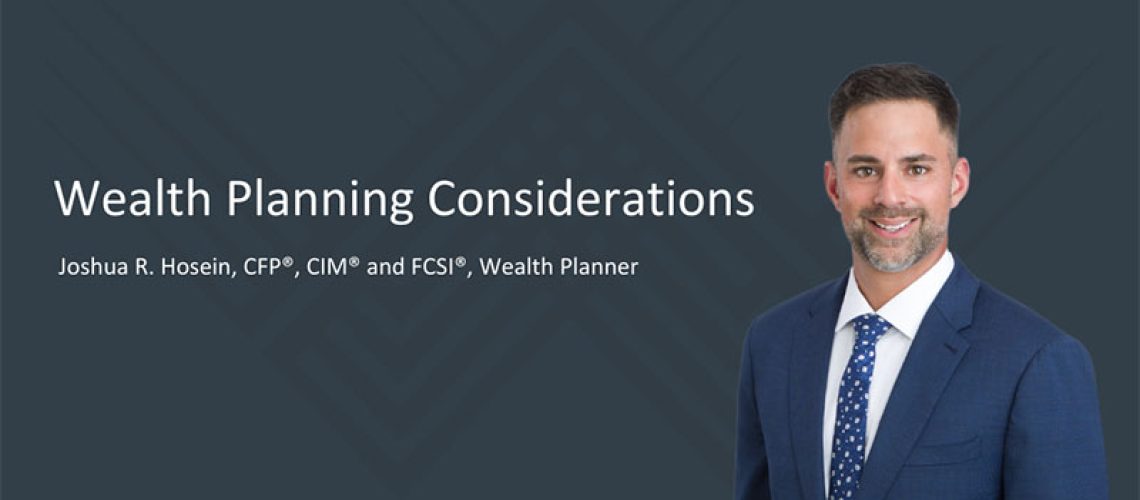People often ask me, “What’s in a Wealth Plan?” Well, a lot depends on what matters most to you. Generally speaking, we can break it down into three main topics:
- Before Retirement: Figuring out how much to save and for how long.
- Retirement: Planning how to spend as much as possible while paying as little tax as possible.
- Estate: Deciding how to pass on whatever’s left to the people who matter most.
When it comes to your estate, that’s where we usually spend most of our time and have the most impactful conversations. Everyone has different ideas about what they want to happen after they’re gone, however there’s one recurring theme that arises in nearly every conversation: a Letter to your Executor.
Let’s assume you’re happy with your will and the person you’ve selected to carry out your wishes, your executor. What’s next? Your executor’s job is to make sure everything in your will happens the way you want it to. But let’s think for a moment about what questions they might have:
- Where is the original will located?
- If in a safe, does your executor know the combination?
- If in a safety deposit box, is your executor listed as an authorized individual?
- Where are the assets located?
- Who should they contact regarding your investments?
- Who should they contact regarding your insurance?
- Do you have any investments in private companies?
- Do you have a stash of cash or precious metals?
- Do you own collectibles?
- What debts and credits exist?
- Have you extended any loans?
- Are you repaying any loans?
- Who can provide guidance?
- Who can the speak with for advice?
- Who should they not speak to for advice?
These are just a few examples that highlight why having a Letter to your Executor is so important. It’s like a cheat sheet for them when they’re sorting out your estate. It saves time and makes sure your loved ones get what you wanted them to have, as quickly as possible. Having this document also gives your executor peace of mind, knowing they’re doing what you would have wanted.
Even though this letter usually comes towards the end of the estate planning process, it can also kickstart things for those who don’t have a will or need to have theirs updated. Simply writing down what you have and where it is can help organizing the next steps.
As we are all in the middle of preparing our taxes, we likely have most of the information needed readily available which is why we wanted to get this letter to you today. We’ll continue to explore other aspects of wealth planning over the coming months and, as always, encourage you to reach out to us for additional recommendations tailored to your unique situation.
All the best,
The information contained herein has been provided for information purposes only. The information has been drawn from sources believed to be reliable. The information does not provide financial, legal, tax or investment advice. Particular investment, tax, or trading strategies should be evaluated relative to each individual’s objectives and risk tolerance. This does not constitute a recommendation or solicitation to buy or sell securities of any kind. Wellington-Altus Private Wealth Inc. (WAPW) does not guarantee the accuracy or completeness of the information contained herein, nor does WAPW assume any liability for any loss that may result from the reliance by any person upon any such information or opinions. Before acting on any of the above, please contact your financial advisor.
©2024, Wellington-Altus Private Wealth Inc. ALL RIGHTS RESERVED. NO USE OR REPRODUCTION WITHOUT PERMISSION.
